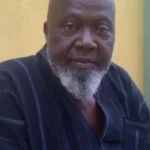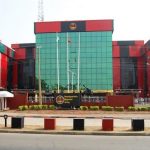
The International College of Surgeons, Nigeria Section, has decried the lack of cancer care experts and facilities in the country.
The surgeons also raised the alarm about the ‘Japa’ phenomenon caused by poor remuneration, loss of job satisfaction and insecurity.
These, they noted have made it difficult for millions of Nigerians to access the services of a doctor.
This was contained in a communique issued at the end of its 2024 AGM/Scientific Conference held in Uyo Akwa Ibom State themed, “Current Trends and Challenges to Surgical Oncology Practice” and Sub-themes; “Insecurity and Delivery of Surgical Services and Minimal Access Surgery,”
In a communique jointly signed by the ICS-NS National President, Akanimo Essiet and Assistant Secretary, Christian Madubueze on Saturday, the surgeons stressed the need for adequate funding and equitable distribution of cancer care and other high-end medical services in the country.
They also emphasised the need for both the federal and state governments to adequately fund public facilities, to cater to the less privileged while also calling for government’s support to ameliorate specialised cancer care which is capital-intensive globally.
The communique reads in part, “Early detection and treatment of the various types of known cancers is key to achieving cure, although therapy also exists to improve the length and quality of life of late presenters, in whom cure is no longer possible.
“Significant government support to ameliorate specialised cancer care which is capital intensive globally. This will give the masses access to quality care.
“The ICS-NS is worried over the inequitable distribution of experts and facilities for cancer care, with complete absence of high-end specialised services in Akwa Ibom and many other states across the federation, lamenting that even the regular screening programs for the few cancers that have reliable early detection tests have not been well implemented.”
They added, “The ICS-NS lamented that the ‘Japa’ phenomenon, caused by poor remuneration, loss of job satisfaction, and insecurity, has made it difficult for millions of Nigerians to see a doctor and has drastically reduced the healthcare workforce, making the doctor to patient ratio in Nigeria, 1:9,083 instead of 1:600 as recommended by the WHO.
“The College maintained that insurable treatments and procedures under the National Health Insurance Scheme should be widened, to capture some critical, specialized, services. Also, affordability and ease of access to capital should be ensured for investors in the health sector, to facilitate the reversal of medical tourism and in so doing, enable proper harnessing of a veritable and significant source of income for the country.
“The College called on states and local governments to attract and keep healthcare workers by providing good healthcare facilities, good roads, improved power supply, access to potable water, good schools and access to telecommunications,”
“On the security in the country, the ICS-NS called on the government to decisively deal with insecurity which is negatively impacting the health of Nigerians.
The President of ICS-NS, Akanimo Essiet, explained that the conference would enable the college to chart a clear path for meaningful practice of the Surgical and allied arts, especially of the humanitarian genre, by Fellows of the College.
Essiet said, “This is our 57th annual meeting. The numeration immediately tells that the ICS-NS is fairly ‘elderly.’ As would be expected, in the course of those 57 years, the collective efforts of Fellows have seen the college grow into a strong, stable, and respected section of the global body.
“The global president has in his goodwill message to us, elucidated the core mandate of the ICS as being in the main, ‘Humanitarian Surgery ‘, while ‘Education ‘, ‘Leadership’, ‘Research ‘ and ‘Communication’ serve as supporting pillars.
“With our regular meetings, congresses and our journal, we have done fairly well in the area of education, research, and communication of research outputs. But we still struggle in the area of Humanitarian Surgery.”
The ICS world President, Dr. Guido Parquet of the Paraguay Section, called on the College, to strive to achieve sustainability in all global humanitarian settings of surgery, and assume the responsibility of training local people to capably carry on the work of visiting humanitarian surgical teams.
Parquet said, “ICS will continue to raise the standards for safe surgery around the world, while at the same time addressing the unmet humanitarian needs of millions of people, recognising and addressing the needs of underprivileged patients”.



